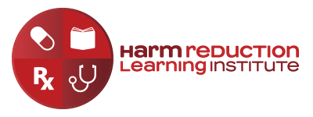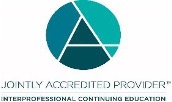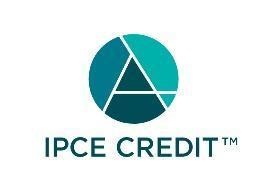

**This course is no longer offering CE credits.**
Course Description: This presentation discusses HCV stigmatization, barriers to HCV care, provider and patient education efforts with respect to HCV, different prevention approaches for HCV, how HCV works biologically and scientifically, geographic, chronological, and demographic trends in HCV transmission, risk factors for HCV transmission, the effects of HCV on the body, HCV treatment options, HCV testing, HCV legal and medical guidelines, and recent and upcoming advances in HCV treatment and prevention.
This course is jointly provided by Postgraduate Institute for Medicine and HealthHIV.
Release Date: 9/25/23
Expiration Date: 9/25/24
UAN: JA4008162-9999-23-326-L02-P
Target Audience
This activity is intended for physicians, pharmacists, registered nurses, PAs, psychologists, social workers and other healthcare providers engaged in the care of patients with HIV.
Educational Objectives
After completing this activity, the participant should be better able to:
- Analyze Hepatitis C demographics to identify hidden patterns and target high-risk populations effectively.
- Describe the revolutionary impact of direct-acting antivirals (DAAs) on Hepatitis C treatment outcomes.
- Explain the significance of universal HCV testing in reducing transmission rates and enhancing public health outcomes.
- Discuss the rationale behind universal HCV treatment and its role in reducing disease burden.
- Navigate simplified HCV treatment guidelines and apply them to patient-centered approaches.
- Evaluate strategies for treating and preventing HCV transmission, focusing on high-risk populations and overcoming barriers to care.
Faculty
- Allyson L. Ishihara, MSW, LCSWA - Licensed Clinical Social Worker at Wake County Health & Human Services - Division of Public Health
- Professor Mark Sulkowski, M.D., Johns Hopkins University School of Medicine, Baltimore, USA
Disclosure of Conflicts of Interest
Postgraduate Institute for Medicine (PIM) requires faculty, planners, and others in control of educational content to disclose all their financial relationships with ineligible companies. All identified conflicts of interest (COI) are thoroughly vetted and mitigated according to PIM policy. PIM is committed to providing its learners with high quality accredited continuing education activities and related materials that promote improvements or quality in healthcare and not a specific proprietary business interest of an ineligible company.
The faculty reported the following relevant financial relationships with ineligible entities related to the educational content of this CE activity:
Dr. Mark Sulkowski disclosed that he had received research grants from Janssen, Vir, and AbbVie, over the course of his work at Johns Hopkins, that he had received consulting fees from AbbVie, Aligos, Atea, Gilead, Precision Bio, GSK, and Virion, pursuant to serving as a Scientific Advisory Board member related to HBV, SARS-CoV-2 and HCV, that he had received personal payments related to work for Gilead and Immunocore, on DSMB related to HIV and HBV, and that he had received personal payments for his role on Journal Viral Hepatitis as the American Editor.
The PIM planners and others have nothing to disclose. The HealthHIV planners and others have nothing to disclose.
Joint Accreditation Statement
 In
support of improving patient care, this activity has been planned and implemented by the Postgraduate Institute for Medicine and HealthHIV. Postgraduate Institute for Medicine is jointly accredited by the Accreditation Council for Continuing Medical
Education (ACCME), the Accreditation Council for Pharmacy Education (ACPE), and the American Nurses Credentialing Center (ANCC), to provide continuing education for the healthcare team.
In
support of improving patient care, this activity has been planned and implemented by the Postgraduate Institute for Medicine and HealthHIV. Postgraduate Institute for Medicine is jointly accredited by the Accreditation Council for Continuing Medical
Education (ACCME), the Accreditation Council for Pharmacy Education (ACPE), and the American Nurses Credentialing Center (ANCC), to provide continuing education for the healthcare team.
Physician Continuing Medical Education
The Postgraduate Institute for Medicine designates this live activity for a maximum of 1.0 AMA PRA Category 1 Credit(s)™. Physicians should claim only the credit commensurate with the extent of their participation in the activity.
Continuing Nursing Education
The maximum number of hours awarded for this Continuing Nursing Education activity is 1.0 contact hours.
Continuing Pharmacy Education
Postgraduate Institute for Medicine designates this continuing education activity for 1.0 contact hour(s) (0.1 CEUs) of the Accreditation Council for Pharmacy Education.
Continuing Physician Assistant Education
 Postgraduate Institute for Medicine has been authorized by the American Academy
of PAs (AAPA) to award AAPA Category 1 CME credit for activities planned in accordance with AAPA CME Criteria. This activity is designated for 1.0 AAPA Category 1 CME credits. PAs should only claim credit commensurate with the extent of their
participation.
Postgraduate Institute for Medicine has been authorized by the American Academy
of PAs (AAPA) to award AAPA Category 1 CME credit for activities planned in accordance with AAPA CME Criteria. This activity is designated for 1.0 AAPA Category 1 CME credits. PAs should only claim credit commensurate with the extent of their
participation.
Continuing Social Work Education
![]() As a Jointly Accredited Organization, Postgraduate Institute
for Medicine is approved to offer social work continuing education by the Association of Social Work Boards (ASWB) Approved Continuing Education (ACE) program. Organizations, not individual courses, are approved under this program. State and provincial
regulatory boards have the final authority to determine whether an individual course may be accepted for continuing education credit. Postgraduate Institute for Medicine maintains responsibility for this course. Social workers completing this
course receive 1.0 Clinical continuing education credits.
As a Jointly Accredited Organization, Postgraduate Institute
for Medicine is approved to offer social work continuing education by the Association of Social Work Boards (ASWB) Approved Continuing Education (ACE) program. Organizations, not individual courses, are approved under this program. State and provincial
regulatory boards have the final authority to determine whether an individual course may be accepted for continuing education credit. Postgraduate Institute for Medicine maintains responsibility for this course. Social workers completing this
course receive 1.0 Clinical continuing education credits.
Continuing Psychologist Education
Continuing Education (CE) credits for psychologists are provided through the co-sponsorship of the American Psychological Association (APA) Office of Continuing Education in Psychology (CEP). The APA CEP Office maintains responsibility for the content of the programs.
Credit Designation: This program offers 1 continuing education credits for psychologists.
Interprofessional Continuing Education
 This activity was planned by and for the
healthcare team, and learners will receive 1 Interprofessional Continuing Education (IPCE) credit for learning and change.
This activity was planned by and for the
healthcare team, and learners will receive 1 Interprofessional Continuing Education (IPCE) credit for learning and change.
Disclosure of Unlabeled Use
This educational activity may contain discussion of published and/or investigational uses of agents that are not indicated by the FDA. The planners of this activity do not recommend the use of any agent outside of the labeled indications. The opinions expressed in the educational activity are those of the faculty and do not necessarily represent the views of the planners. Please refer to the official prescribing information for each product for discussion of approved indications, contraindications, and warnings.
Disclaimer
Participants have an implied responsibility to use the newly acquired information to enhance patient outcomes and their own professional development. The information presented in this activity is not meant to serve as a guideline for patient management. Any procedures, medications, or other courses of diagnosis or treatment discussed or suggested in this activity should not be used by clinicians without evaluation of their patient's conditions and possible contraindications and/or dangers in use, review of any applicable manufacturer's product information, and comparison with recommendations of other authorities.